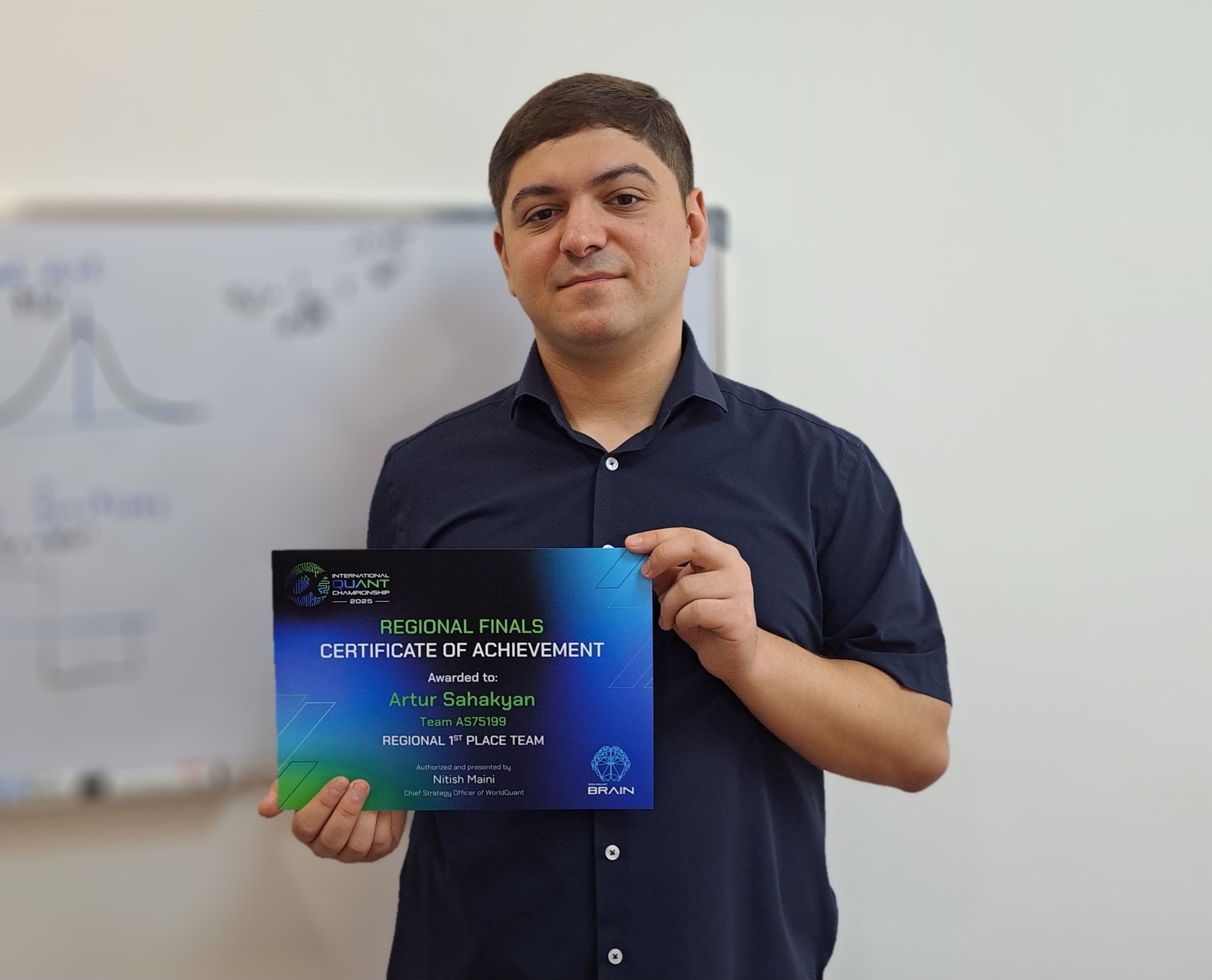The world of quantitative finance is vague to those outside of it — jargon like “algorithms” and “alphas” enter one ear and swiftly exit the other. Artur Sahakyan’s interest in quantitative finance was piqued by the story of Los Alamos, where scientists developed algorithms which led to the success of the Manhattan Project. Today, these algorithms influence fields such as fusion energy research, astrophysics, and materials science. Artur, who hails from Yerevan, Armenia, considered the potential of research in creating change, and wanted to be a part of it.

He discovered the International Quant Championship, a three-stage, team-based competition spanning from March to September 2025. Utilising WorldQuant BRAIN’s simulation platform, International Quant Championship participants accumulate points by building alphas using historical market data and predefined operators to simulate equity positions. WorldQuant defines ‘alphas’ as mathematical models that seek to predict the future price movements of various financial instruments.
“My dream to do impactful scientific research led me to this competition,” Artur told me.
Artur, unfamiliar with the inner workings of quantitative finance, read books on the topic in preparation for the competition. He won the Qualifier Round, advancing to the Regional Round and winning first place overall out of 79,000 worldwide teams. Only 12 teams advanced to the Global Finals — Artur’s team being one — which will be held in Singapore in September 2025.
“In the beginning, I didn’t notify anyone that I was doing this competition,” he confessed. “After I achieved first place in the Regional Round, I had the opportunity to invite a university representative. Dean Dr. György Cserey very gladly agreed to come and embraced the news of my success.”
He owes his success to his skills in computer science engineering, which he is studying at a master’s level (with a specialisation in machine learning) at Pázmány ITK. He arrived at the university under the Scholarship Programme for Christian Young People. This scholarship programme was established by the Government of Hungary, “in the spirit of the policy of solidarity towards persecuted Christian religious minorities”.
His Christian faith was not the only reason he chose Pázmány ITK to pursue his studies. The faculty’s reputation for research, which combines computer science and life science, also attracted him. He cited the university’s availability of specialisations in machine learning and data science:
“I’ve always wanted to do things related to artificial intelligence,” he told me. “Machine learning is one of the building blocks of artificial intelligence.”
Artur, along with Dean Dr. György Cserey, will fly to Singapore for the Global Finals, to be held from September 27th to October 1st, 2025. The prize for first place is $20,000 for the winning team.
To prepare himself for the final, Artur is engaging in a lot of active research, from reading books to sitting in front of his whiteboard sketching ideas.
He is not concerned with the overall victory of the competition, but is grateful to have progressed this far and gained a lot of insights along the way:
“I’m not chasing the victory itself, but I am eager to show what I have learned from this”.
Both the staff and students at Pázmány ITK wish Artur the best of luck in this prestigious competition!


